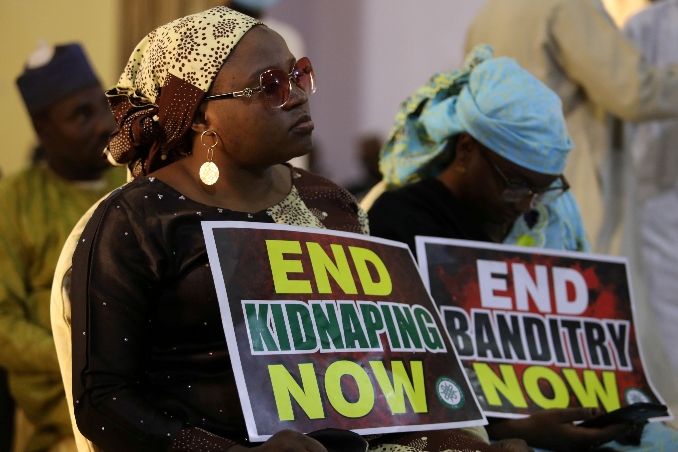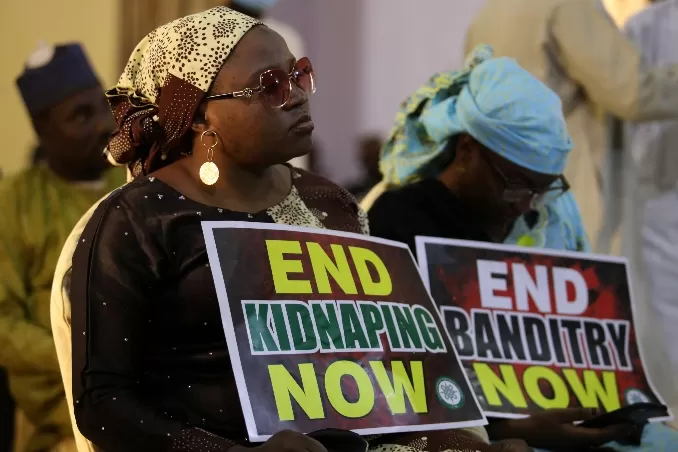

nigeria’s ‘kidnap epidemic'
Last updated on September 11th, 2021 at 07:55 am
Northern Nigeria is witnessing a worsening form of violence – school children are regularly being abducted by armed bandits. This year till now over 1000 students have been kidnapped from schools.
Many have been released but more than 200 are still abducted. Many communities in the region have blamed inadequate and meaningful engagement with the groups by the government, thereby turning a large part of the northern part of Nigeria into a safe operating haven for kidnapping gangs.
The people in the country describe the ongoing “kidnap epidemic” as a security crisis that is the result of series of failings on the government’s account. The kidnappings might lead to lower school attendance and enrolment, a concern in the country that is already struggling with high illiteracy rates and child marriage.
In May, 128 students were abducted from Bethel Baptist School in Kaduna, northern Nigeria. Last week 28 of the students were freed in an exchange for ransom to bandits. Six students managed to escape the kidnappers, while 87 remaining are still in captivity. The ones freed were lucky, others not so much as their families are still trying to arrange for ransom money.
Bandits in the majority are believed to be Fulanis, an ethnic group with a culture rooted in nomadic cattle rearing life spread across west Africa. With the privatization of grazing land and climate crisis, conflicts among farmers and the group have increased.
The bandit or kidnappers gangs are flourishing in the region with an estimated number of over 3000 across northern Nigeria. The lives of locals have been pushed into a permanent fear situation. The operating grounds of these gangs lie in the deep covered forests spreading across central and northwest Nigeria into Niger.
Thousands of young Fulanis emerging as unaffected bandits are escalating into the biggest security crisis in the African country.
The increasing economic crisis in Nigeria has made the government incapable of properly funding security forces to counter the bandits. This has made the ‘business’ of kidnapping a lucrative crime with no strong counter from forces.
Murtala Abdullahi, a security and climate expert in Nigeria said, “The security intervention in the north-west is a reflection of the broader problematic way politicians respond to security issues in the country.” He added, “It’s reactionary and heavily dependent on military force. We have also seen mixed approaches, dialogue (with the armed groups) and non-dialogue, in the absence of a strategic framework or strategy.”
The Somali president supports their military forces to eliminate the threats from Al-Shabaab, ISIS, and Al-Qaeda. The Somali National Army…
UAE President Sheikh Mohamed bin Zayed Al Nahyan held talks with President Faustin Archange Touadéra of the Central African Republic…
African football teams struggle intensely in the World Cup Qualification rounds to earn their place on the international football stage.…
The journey toward the 2026 FIFA World Cup is rapidly intensifying for all African teams, who now hold a historical…
The cricket authority in Zimbabwe will organize matches between top international teams in a major cricket event expected to succeed…
In 2025 the South African Social Security Agency (SASSA) announced its designated dates for social grant payments that benefits millions…
This website uses cookies.